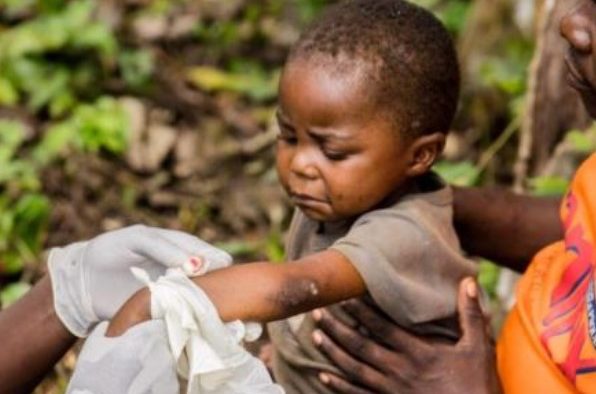Mpox in Africa: Children most affected

Burundi is among the regions where children are bearing the brunt of the mpox outbreak with alarming rates of infection and health impacts.
Significant concerns have recently arisen due to the mpox spread, displaying increased mortality when compared to previous cases, which led the World Health Organization (WHO) to sound its highest alert level and also triggered an urgent appeal by UNICEF for nearly US$58.8 million to support efforts to halt the rapid spread of the disease in six African countries, where youngsters have been impacted the most.
The appeal aims to reach children affected by the outbreak in Burundi, the Democratic Republic of the Congo (DRC), Kenya, Rwanda, Uganda, and the Central African Republic, where thousands of children are at risk of infection, secondary complications, and social stigma associated with the belief that human-to-human sexual contamination may have caused the problem. This is while most children catch the disease from body-to-body contact or contact with animals or infected materials.
The Central African nation is the epicentre of the new mpox outbreak, leading to an alert announcement by the World Health Organization (WHO). As the virus spreads further, the affected groups are changing, with the virus also taking hold within households and other settings. Recent evidence shows that in 2024, more than 20,000 mpox cases have been reported and more than 500 people have died.
As reported by UNICEF Regional Health Advisor for Eastern and Southern Africa, Burundi is among the regions where children are bearing the brunt of the mpox outbreak with alarming rates of infection and health impacts. Evidence highlights that of the nearly 600 reported cases, two-thirds are children under 19 years old, and the situation is escalating rapidly. With the start of the school year in Burundi, the UN agency has expressed concerns about the rise of mpox among children under five years of age, who represent 30% of reported cases.
The Democratic Republic of Congo (DRC) reported the first case in the outbreak two years ago. Mpox is endemic in the country, but the new scourge comes at a hard time. In many regions, health workers are having to treat patients even as war closes in. African countries are already stretched because they have low health budgets as most prioritize security needs amid several conflicts, like in eastern DRC.
Many children who die in the DCR are immune-suppressed through severe malnutrition, along with having suffered the effects of conflict and perhaps other diseases at the same time. The high infection rates and mortality in affected countries, particularly in the DRC, underscore children’s vulnerabilities, exacerbated by limited access to healthcare, sanitation, and hygiene. Malnutrition and other common childhood diseases, as well as displacement, further compound the crisis.
According to WHO risk assessment, the current expansion of mpox in the African continent is unprecedented. At least four countries have identified cases for the first time and others, such as Côte d’Ivoire, are reporting re-emerging outbreaks. The modes of transmission in these countries are not fully described yet and are likely to include exclusive human-to-human transmission.
WHO has also announced that although the governments and partners are all mobilized to support adequate patient care for affected patients and introduce vaccines for people at risk, these measures are currently not in place in most countries in Africa. In the meantime, UNICEF’s response to the mpox outbreak focuses on providing an integrated approach to break active transmission of the disease, prevent secondary harm to children, and support preparedness efforts.
References
news.un.org/en/story/2024/09/1154571
www.aljazeera.com/features/2024/9/3/virus-hunters-the-scientists-tracking-deadly-diseases-in-tough-conditions
www.unicef.org/bhutan/press-releases/unicef-has-launched-appeal-us588-million-address-rising-mpox-crisis-across-six#:~:text=NEW%20YORK%2C%2016%20September%202024,cases%20in%20children%20under%2015.

